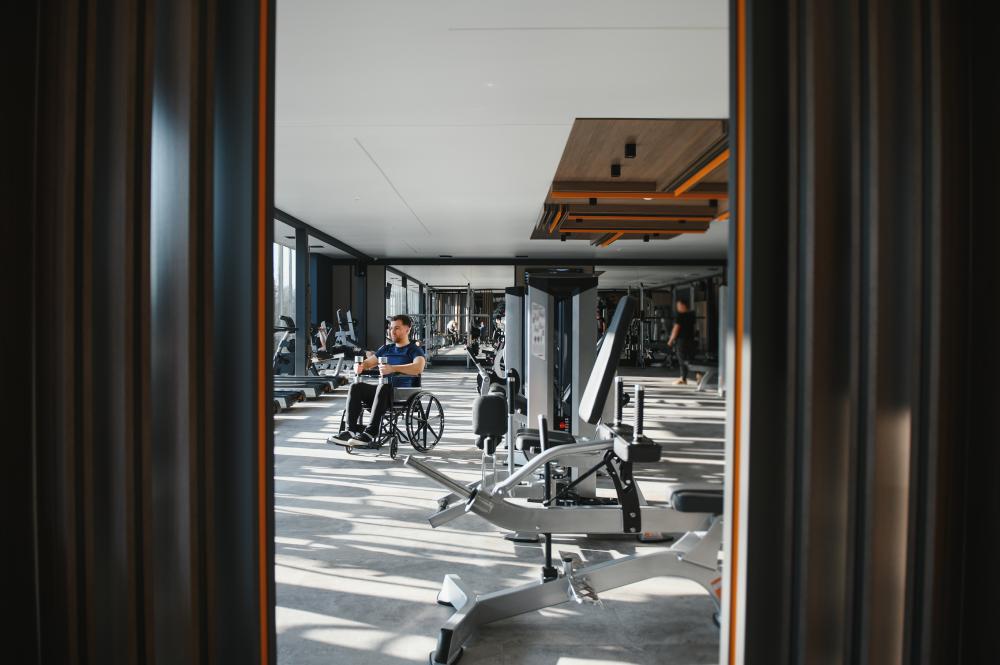Exploring Different Perspectives
In the vast world of healthcare facilities, Whittier Rehab stands as a notable entity. As a professional with over two decades spent at Solace Treatment Center, I’ve witnessed the profound impact that dedicated rehabilitation services can have on individuals’ lives. Whether it’s recovering from a severe accident or managing chronic conditions, the journey is deeply personal and multifaceted.
My experience with various rehab centers has underscored the importance of personalized care. Each patient’s story is unique, a tapestry woven with individual challenges and triumphs. This is no less true for those who seek services through Whittier Rehab. The facility’s commitment to creating tailored treatment plans aligns closely with the practices we emphasize at Solace Treatment Center. When rehabilitation centers focus on holistic, patient-centered care, the potential for recovery becomes more than just a possibility–it becomes an achievable reality.
The collaborative approach I’ve observed at Whittier Rehab, involving patients, families, and healthcare providers, fosters a supportive environment crucial for healing. The emphasis on involving family and community creates a pillow of support that catches patients in moments of doubt. This is a strategy we’ve seen work wonders in building a resilient recovery process.
Common Challenges in Rehabilitation
Challenges in rehabilitation are as varied as the individuals undergoing treatment. While the journey through Whittier Rehab may be paved with expert guidance, it’s not without its hurdles. Patients often grapple with the frustration of slow progress, a reality we frequently confront at Solace Treatment Center. A critical part of our roles as rehabilitation professionals is to remind patients that every step forward, no matter how small, is a victory worth celebrating.
Moreover, the emotional and psychological toll can be significant. Patients dealing with long-term rehabilitation at Whittier Rehab might face a range of emotions, from anger to hopelessness. Building a rapport with patients becomes essential, as it allows healthcare providers to offer more than just physical healing–it enables us to be facilitators of hope. This dual approach promotes mental resilience and encourages a more comprehensive path to recovery.
Another challenge lies in maintaining motivation. For some, the initial enthusiasm of starting a rehabilitation program fades over time. This is where a robust support system plays a pivotal role. Whittier Rehab’s integration of community and family support is a strategy that mitigates such challenges, reinforcing the patient’s motivation to persist.
- Loss of motivation
- Emotional fatigue
- Physical setbacks
- Frustration with progress
Anecdotes from the Rehabilitation Journey
Nothing brings a concept to life quite like the stories of those who have experienced it firsthand. One patient I met during a collaborative session at Whittier Rehab shared their journey of recovering from a debilitating injury. Their narrative was one filled with tenacity–a testament to human resilience. They spoke of days where the pain seemed insurmountable, only to be countered by small victories that gradually redefined their capabilities.
Such anecdotes are a cornerstone of my professional practice. They serve as potent reminders that the essence of rehabilitation lies not just in physical recovery but in the transformation of the human spirit. Patients at Whittier Rehab, much like those at Solace Treatment Center, often cite personal breakthroughs that change their perspectives on their capabilities and futures.
These stories echo a universal truth: that recovery is a deeply personal journey. The emotional aspect is just as vital as the physical, and the melding of the two is where true rehabilitation occurs. Hearing these stories continually renews my belief in the work we do as healthcare providers.
What I’ve learned from interacting with patients at Whittier Rehab is that recovery is as much about rediscovery as it is about healing. Rediscovering strength, purpose, and the self are intrinsic parts of the journey, shared across the spectrum of rehabilitation facilities.
What Qualifies as a Whittier Rehab Emergency?
An emergency at Whittier Rehab typically involves sudden and severe health changes, requiring immediate medical intervention. These emergencies may include acute injuries, dramatic pain escalations, or unexpected complications with existing medical conditions.
Here are the steps to address such emergencies:
- Immediately notify on-site medical staff of the situation.
- Ensure the patient is moved to a safe and stable position.
- Conduct a swift assessment to determine the severity of the emergency.
- Initiate emergency medical protocols as outlined by the facility.
- Contact emergency medical services if the situation exceeds facility capabilities.
Rapid response and efficient emergency handling can significantly mitigate potential complications, underscoring the importance of well-trained staff and clear communication channels within Whittier Rehab.
Standards and Quality of Care at Whittier Rehab
Whittier Rehab is renowned for its adherence to high standards of care, something that we, at Solace Treatment Center, deeply value. The facility’s accreditation by relevant health bodies ensures that it regularly meets stringent quality benchmarks. This aspect cannot be overstated, as maintaining high standards is pivotal in delivering effective and safe care to patients.
The comprehensive training and continued education required of the Whittier Rehab staff contribute significantly to maintaining these standards. Patients benefit from a team that is not only knowledgeable but also passionate about ongoing professional development. This commitment to excellence is mirrored in the patient outcomes we strive to achieve at Solace Treatment Center.
Equally important is the incorporation of evidence-based practices in treatment protocols. At Solace Treatment Center, we have found that integrating current research findings into our approaches enhances patient recovery rates and satisfaction. Whittier Rehab’s similar dedication ensures that patients receive care optimized to the latest advancements in rehabilitation science.
Trust is built through professionalism and consistent care quality. Patients entering facilities like Whittier Rehab do so with the expectation of receiving expert attention. It is through maintaining these standards that trust is reinforced, enabling patients to focus entirely on their journey to recovery.
What role does personalized care play in rehabilitation at Whittier?
Personalized care is absolutely central to the rehabilitation process at Whittier. Each patient brings a unique set of challenges and history, and their recovery journey needs to reflect that individuality. At Solace Treatment Center, we emphasize tailored treatment plans because they allow us to meet the nuanced needs of each client effectively. Similarly, Whittier’s approach to creating customized rehabilitation plans ensures that each patient is treated as a whole person, not just a list of symptoms. This personalized attention not only aids in physical recovery but also fosters mental and emotional healing. Think of it as crafting a bespoke suit versus buying off the rack; tailored care fits the patient perfectly, allowing for more comfort and improved outcomes. What aspects of your treatment do you think could benefit from more personalization?
How does Whittier Rehab address the psychological challenges in rehabilitation?
Addressing psychological challenges is an integral part of the rehabilitation process at Whittier. Many patients face emotional hurdles such as frustration, loss of motivation, and mental fatigue. Whittier takes a comprehensive approach by integrating psychological support with physical rehabilitation, ensuring that mental health is not sidelined. At Solace Treatment Center, we recognize the importance of this dual focus, as mental resilience can significantly enhance physical recovery. By fostering strong relationships between patients and healthcare providers, Whittier encourages open communication, which helps to build trust and hope. Imagine the process as climbing a mountain; while the physical climb is daunting, the mental fortitude required is equally challenging. How do you think working on mental resilience could help in physical recovery?
What are the common misconceptions about rehabilitation at Whittier?
A common misconception about rehabilitation at Whittier is that it solely focuses on physical recuperation, overlooking the psychological and emotional aspects. However, Whittier’s holistic approach integrates mental health support as a core component of its programs. Another misconception is that progress must always be linear; many believe that setbacks indicate failure. On the contrary, setbacks are a natural part of the journey and often lead to breakthroughs in understanding one’s capabilities. At Solace Treatment Center, we often remind clients that the path to recovery is more like a winding road than a straight line. By shedding these misconceptions, patients can embrace the process more fully and appreciate the incremental progress they make. What misconceptions have you encountered in your own or others’ rehabilitation experiences?
How do Whittier Rehab and Solace Treatment Center ensure quality care?
Both Whittier Rehab and Solace Treatment Center uphold stringent standards to ensure the highest quality of care. Accreditation by health bodies is a crucial component, as it requires both facilities to meet and maintain rigorous benchmarks. At Solace, we place a strong emphasis on evidence-based practices and continual staff education, a philosophy shared by Whittier. This commitment to ongoing professional development ensures our teams are equipped with the latest knowledge and techniques necessary for effective patient care. Imagine trying to keep a garden vibrant; it requires regular tending, informed by the best horticultural practices. Similarly, quality care in rehabilitation demands constant nurturing and innovation. How do you think ongoing staff education impacts patient outcomes?
What emergency protocols are followed at Whittier?
When emergencies occur at Whittier, they follow a well-structured protocol to ensure patient safety and rapid response. An emergency might involve a sudden health change requiring immediate attention. In such cases, the first step is to notify the on-site medical staff and assess the situation. Patients are moved to safety, and emergency medical protocols are initiated to address the issue swiftly. If the situation is beyond the facility’s capacity, external emergency services are contacted. This approach, mirrored at Solace Treatment Center, emphasizes preparedness and efficient communication to mitigate potential complications. Consider emergency protocols like a well-rehearsed fire drill: everyone knows their role, which minimizes chaos and maximizes safety. What measures do you believe are crucial in handling emergencies effectively?
Why is community support important in the rehabilitation process at Whittier?
Community support plays a pivotal role in the rehabilitation process at Whittier, as it provides an essential network of encouragement and accountability. Patients often find that recovery extends beyond medical treatment to include emotional and social healing. At Solace Treatment Center, we’ve seen firsthand how community involvement, whether through family, friends, or group support meetings, bolsters individuals’ motivation and resilience. It’s akin to running a marathon; the support of those cheering from the sidelines often makes the difference between continuing and giving up. Community support can transform the rehabilitation experience from a solitary struggle into a shared journey, reinforcing a sense of belonging and hope. What forms of support have been most beneficial in your recovery process?




